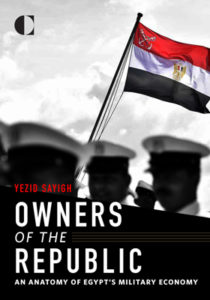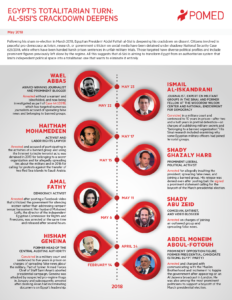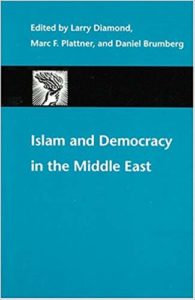
Carnegie Middle East Center
Egypt’s military is consolidating its role as an autonomous actor that can reshape markets and influence government policy. But recent protests suggest that, rather than a model of stability, the regime is one of authoritarian fragility.
Since the popular uprising that forced then-president Hosni Mubarak from office in February 2011, military agencies have expanded their influence to virtually all sectors of the Egyptian economy, from delivering infrastructure projects to manufacturing consumer goods to producing steel, according to a new analysis.
The Egyptian military today accounts for far less of the national economy than is commonly believed. However, its takeover of power in 2013 and the subsequent election of then-defense minister Abdel-Fattah al-Sisi as president have transformed its role in both scope and scale, turning it into an autonomous actor that can reshape markets and influence government policy and investment strategies, says the Carnegie Middle East Center’s report, “Owners of the Republic: An Anatomy of Egypt’s Military Economy.,”
Entrenchment of the military economy is detrimental to Egypt’s politics, says the author, Yezid Sayigh, senior fellow and director of the program on Civil-Military Relations in Arab States (CMRAS):

Project on Middle East Democracy
The military economy must be reversed in most sectors, rationalized in select remaining sectors, and brought under unambiguous civilian control if Egypt is to resolve the chronic structural problems that impede its social and economic development, inhibit productivity and investment, subvert market dynamics, and distort private-sector growth. Nor can any Egyptian government exercise efficient economic management until informal officer networks in the civilian bureaucracy, public-sector companies, and local government are disbanded.
The report dissects Egypt’s military-led economic model and offers thoughts on how external actors can engage with the country’s formal and informal networks. RTWT
While there is no clear path to peaceful change, Sisi’s continued rule promises to drive Egyptians into increasingly desperate circumstances, as well as to increase security headaches for Europe and the U.S., which funds Egypt’s military to the tune of $1.3 billion annually, adds Michele Dunne, a board member of the National Endowment for Democracy.

Project on Middle East Democracy
If you were designing a formula for a country to explode, it would look like what El-Sisi is doing in Egypt—with repression worse than anything under Mubarak, with a huge demographic boom on top of very weak economic performance, on top of climate and other pressures, according to the International Republican Institute’s Dan Twining.*
Recent protests in Egypt indicate that, rather than a model of authoritarian stability, the regime that el-Sisi has built is one of authoritarian fragility, analyst Timothy Kaldas wrote for World Politics Review.
The problem is that Arab governments “adopt only the security approach” in fighting ISIS and other jihadist groups, according to Romany Shaker, Arabic language senior research analyst at the Middle East Media Research Institute (MEMRI). “I haven’t seen any Arab country that is … tackling the Islamist ideology that produces these [groups],” he told the Middle East Forum:
 Media outlets commonly write off these groups as “khawarij,” an early Islamic sect that revolted against the authority of Caliph Ali, to discredit them, rather than addressing “the [Quranic] verses, the codes, the traditions that these groups … are using to recruit,” he explained “The other thing that I don’t see is tackling local grievances … freedoms, democracy do not exist in these communities.” Both trends are evident in Egypt.
Media outlets commonly write off these groups as “khawarij,” an early Islamic sect that revolted against the authority of Caliph Ali, to discredit them, rather than addressing “the [Quranic] verses, the codes, the traditions that these groups … are using to recruit,” he explained “The other thing that I don’t see is tackling local grievances … freedoms, democracy do not exist in these communities.” Both trends are evident in Egypt.
“The Egyptian government has largely succeeded in countering the Islamist groups from a security perspective, but not from an ideological perspective,” says Shaker. And it has allowed legitimate grievances to fester. “We have cases … of people who are being arrested or [who] disappear because of voicing their opinions.”
*The New Yorker’s Susan B. Glasser and TAI contributing editor David J. Kramer host a roundtable discussion with Twining, the NED’s Carl Gershman, and Richard Fontaine on Reagan’s legacy and democracy promotion.







